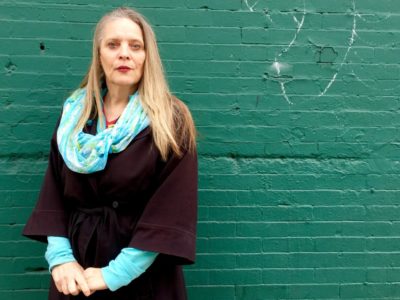Weve come through a devastating and upsetting time, watching the carnage at the Washington Navy Yard and hearing from the families of the victims. Its been yet another disaster when weve wished that we could better predict and interdict persons who choose to harm others.
I am proud to say that New York is leading the country particularly when it comes to the thorny mix of guns and mental illness.When the New York legislature developed the Secure Ammunition and Firearms Enforcement Act (SAFE Act) legislation early this year, it was clear that dealing with mental health issues would be a challenge, as well as a paramount responsibility.However, failing to respond while gun violence impacted our country was not an option. We needed to legislate improved oversight and control over guns purchased in New York and more particularly, we needed to focus on mental illness and gun ownership.The majority of individuals who suffer from mental illness or emotional distress will never harm anyone.Yet, when mental illness is coupled with anger or violent delusions, preventative measures must be taken.New Yorks SAFE Act should serve as a guide for drafting effective legislation for other states and more importantly, the federal government.Our primary focus was to concentrate on preventative measures to keep guns out of the hands of those who pose a potential threat. The SAFE Act requires mental health professionals to report cases where they have assessed that an individual is too dangerous to possess a gun.The SAFE Act provides specific guidelines to be used when a doctor, psychologist, nurse or clinical social worker determines that an individual with mental illness has the potential to harm him/herself or others.Other safeguards included in the SAFE Act allow for emergency commitment for treatment or care of individuals suffering from mental illness. While this has the potential to have damaging effects on the lives of individuals, the new law provides checks on overzealous mental health professionals, including oversight and approval by mental health administrators followed by criminal justice and judicial system personnel.It also expressly provides that mental health professionals are not subject to civil or criminal liability if the professionals decision is made reasonably and in good faith.Specifically for the patients well-being, the law further provides that the front line mental health official report only a patients name and address, as well as other basic non-clinical identifying information to the Department of Criminal Justice Services (DCJS) the agency charged with checking whether the patient has a lawful firearms license.DCJS will only report this identifying information to the local firearms licensing official, who must either suspend or revoke the license. If the licensing official wants to obtain additional information regarding the individuals mental health report, the licensing official must first obtain a subpoena.When I debated the SAFE Act in January, I was asked whether it is the federal governments job to enact such laws. I said then, and I say now emphatically, that indeed it is Congresss job. However, in the absence of federal action, New York must enforce its own law.We have adopted a good law that lays a foundation to prevent tragedies like we saw in Newtown, Connecticut and Washington, D.C. These are tools to help prevent individuals with mental illness from harming themselves and others.At the same time, we took great care to balance the rights of all individuals, including those with mental illness, by providing several layers of review before preemptive action can be taken.We have to protect the public from gun abuse and carnage. Congress must follow our lead.Assemblymember Joseph Lentol represents the 50th A.D.Op-Ed: D.C. should follow New Yorks lead

Assemblymember Joseph Lentol
 ADAMS FOR MAYOR: Eric Will Lift A Lamp “Beside The Golden Door”
ADAMS FOR MAYOR: Eric Will Lift A Lamp “Beside The Golden Door”  Opinions & Observations: Supporting the arts in challenging times
Opinions & Observations: Supporting the arts in challenging times